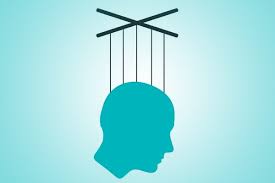Murray, S., Dykhuis, E., & Nadelhoffer, T.
(2022, February 8).
https://doi.org/10.31234/osf.io/kyza7
Abstract
Experimental work on free will typically relies on using deterministic stimuli to elicit judgments of free will. We call this the Vignette-Judgment model. In this paper, we outline a problem with research based on this model. It seems that people either fail to respond to the deterministic aspects of vignettes when making judgments or that their understanding of determinism differs from researcher expectations. We provide some empirical evidence for a key assumption of the problem. In the end, we argue that people seem to lack facility with the concept of determinism, which calls into question the validity of experimental work operating under the Vignette-Judgment model. We also argue that alternative experimental paradigms are unlikely to elicit judgments that are philosophically relevant to questions about the metaphysics of free will.
Error and judgment
Our results show that people make several errors about deterministic stimuli used to elicit judgments about free will and responsibility. Many participants seem to conflate determinism with different constructs (bypassing or fatalism) or mistakenly interpret the implications of deterministic constraints on agents (intrusion).
Measures of item invariance suggest that participants were not responding differently to error measures across different vignettes. Hence, responses to error measures cannot be explained exclusively in terms of differences in vignettes, but rather seem to reflect participants’ mistaken judgments about determinism. Further, these mistakes are associated with significant differences in judgments about free will. Some of the patterns are predictable: participants who conflate determinism with bypassing attribute less free will to individuals in deterministic scenarios, while participants who import intrusion into deterministic scenarios attribute greater free will. This makes sense. As participants perceive mental states to be less causally efficacious or individuals as less ultimately in control of their decisions, free will is diminished. However, as people perceive more indeterminism, free will is amplified.
Additionally, we found that errors of intrusion are stronger than errors of bypassing or fatalism. Because bypassing errors are associated with diminished judgments of free will and intrusion errors are associated with amplified judgments, then, if all three errors were equal in strength, we would expect a linear relationship between different errors: individuals who make bypassing errors would have the lowest average judgments, individuals who make intrusion errors would have the highest average judgments, and people who make both errors would be in the middle (as both errors would cancel each other out). We did not observe this relationship. Instead, participants who make intrusion errors are statistically indistinguishable from each other, no matter what other kinds of errors they make.
Thus, errors of intrusion seem to trump others in the process of forming judgments of free will. Thus, the errors people make are not incidentally related to their judgments. Instead, there are significant associations between people’s inferential errors about determinism and how they attribute free will and responsibility. This evidence supports our claim that people make several errors about the nature and implications of determinism.
